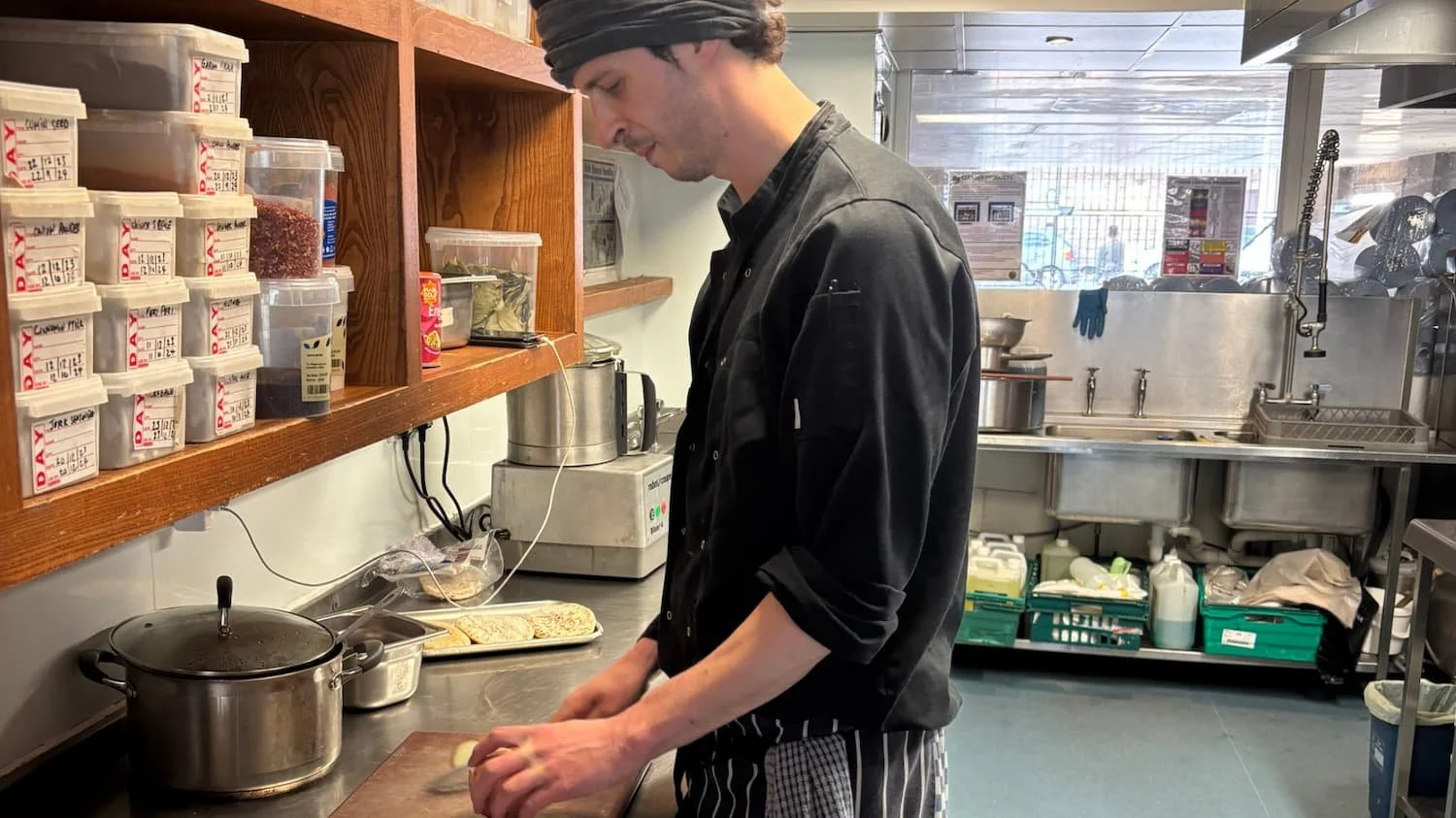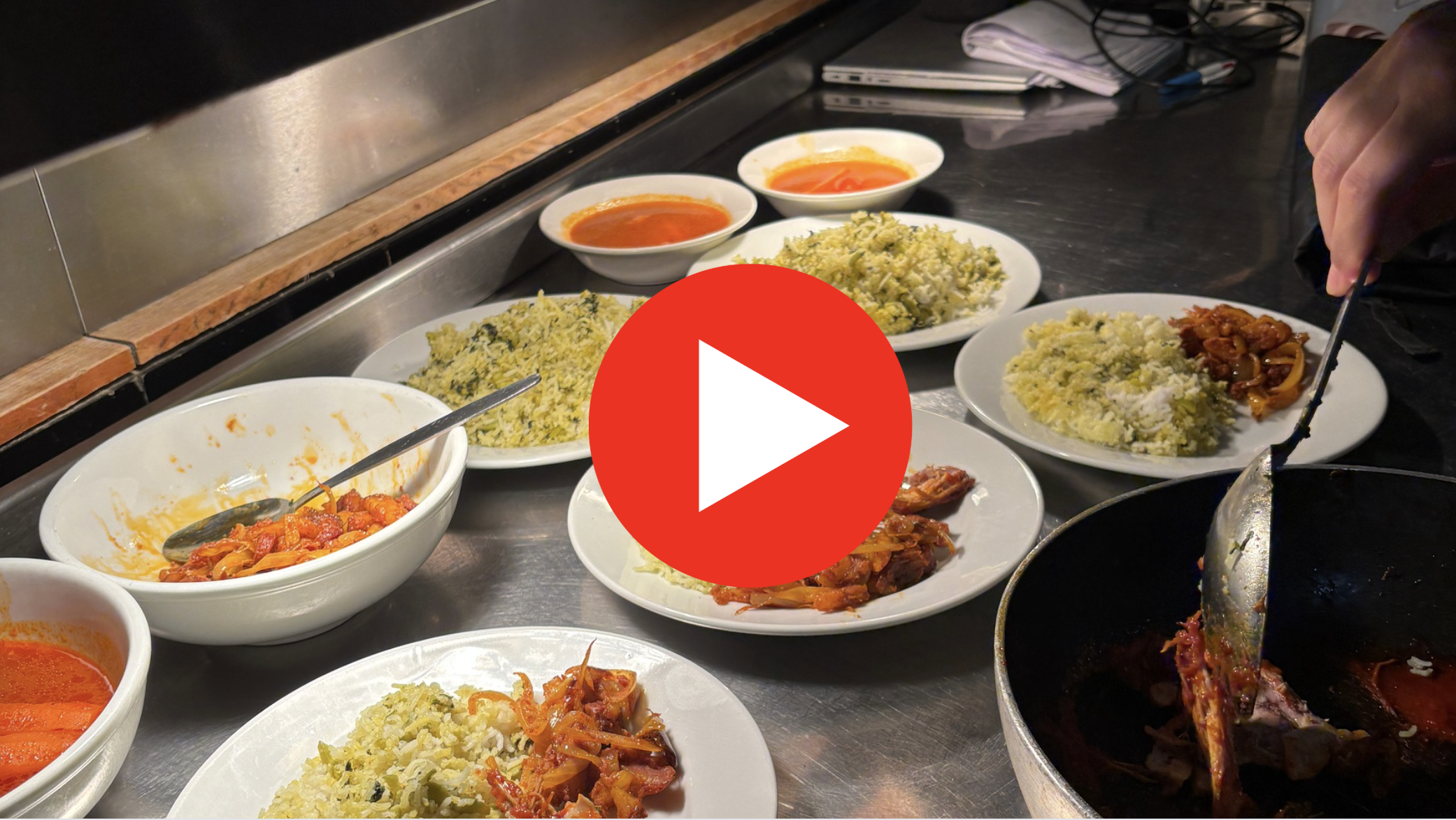Flavours of Home
Flavours of Home gives people seeking asylum, living in Hackney, the opportunity to cook and share food from their homelands.
Ed Kanerick, chef and programme manager at Shoreditch Trust, chops an onion at the kitchen
The delicious smells of tangy spices hit us before we enter the large, light-filled community space on the banks of the Regent’s Canal.
Inside, friends catch up over homemade meals, while others cook side-by-side in the gleaming steel professional kitchen.
This is Flavours of Home, an open community kitchen for people seeking asylum living in hotel accommodation in the borough, funded by Hackney Council and facilitated by Shoreditch Trust.
Ed Kanerick, chef and programme manager at Shoreditch Trust, says: “The outline of the programme is to provide asylum seekers, living in two hotels in the borough, with the ability to cook food that is culturally significant to them.
“The hotel food, provided by the Home Office, often isn’t great. Culturally inclusive food is hard to find – and that’s why community kitchens like this are so important to our clients.”
N and B, seeking asylum from Iran, are regulars at the kitchen. This week they are cooking tahdig (crispy Iranian rice), chicken, and zeytoon parvardeh (olives marinated with walnuts, pomegranate molasses and herbs).
N says: “I like coming here because the food in the hotel is bad. I’m originally from Iran, where the food is good. I try to come every week and cook Iranian food. When I lived in Iran my mum was cooking. But now I cook here – and I love it!”
Shoreditch Trust works with two hotels in Hackney and has space for six people seeking asylum, and their friends, per session.
Clients from Iran, Eritrea, Sudan, Pakistan, Egypt, South Africa, Hong Kong, Trinidad, Iraq, Türkiye, Jordan, Kuwait and Afghanistan have all joined the Flavours of Home programme.
Ed continues: “We go to the hotels, meet the clients in person, and ask them to join our cooking groups. We get a rough ingredients list, which I work into a budget.
“I never factored in how much I would learn – I can now cook Persian and Sudanese dishes. For me the real outcome is when you get people who engage who didn’t have the confidence before.”
For the clients, the community kitchen provides a respite from the hotel, a sociable space, and agency over their own culturally appropriately cooked meals. They are also given volunteer roles in the kitchen, creating confidence-building and hospitality skills.
A, seeking asylum from Pakistan, has brought her friend, Z, from Afghanistan, who she met at the hotel three months ago.
She says: “Today we cooked aubergine and chicken from Afghanistan. I come once a week to cook. In the hotel we don’t have the facilities and sometimes the food they give us is so bad we can’t eat it. No-one likes it.
“I love coming here because we can cook the food from our homes. The chef gives us ingredients for free and we can cook what we want. We can bring our friends too. It’s good cooking and eating together. We like eating our cultural food.
“Next week my friend wants to cook Kabuli pulao rice [an Afghan national dish of lamb, carrots, raisins and rice]. The last time she ate this was in Afghanistan, over eight months ago.”


